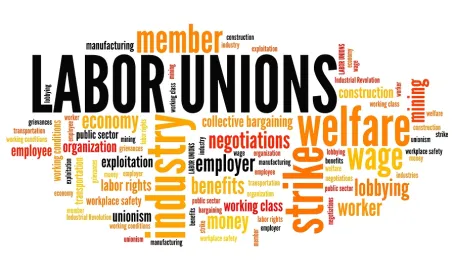The U.S. Department of Labor (DOL) moved one step closer to undoing President Obama's permanently enjoined “persuader activity” regulation when, on June 12, the agency issued a notice of proposed rulemaking (NPRM) for reverse rulemaking to rescind the rule and perhaps revise it. According to the NPRM, the DOL will be accepting public comments on the rule until August 11, 2017.
The DOL’s rule would have significantly revised and expanded the reporting and disclosure requirements imposed on employers and advisors (including consultants and lawyers) under the Labor-Management Reporting and Disclosure Act (LMRDA). If implemented, the DOL’s new rule would have required employers and consultants to report and disclose direct or indirect communications that have an object to persuade employees with regard to union organizing—including what was formerly considered exempt "advice" provided to management by consultants, including lawyers.
The so-called “persuader” rule, which would have required employers to disclose who advises them on how to discourage union organizing activity, was already set aside last November when a Texas federal judge ruled that, among other grounds, it exceeded the DOL’s authority and compromised free speech and attorney-client privilege. Employers and other interested parties should use this opportunity to provide comments to the DOL on the effects of the persuader rule on their organizations.
What is “Persuader Activity”?
Ever since the 1947 Taft-Hartley Act amendments, employees in the United States have had protected rights to engage in or refrain from union activity or other forms of concerted action. Unions have consistently sought to undermine, in Congress, employees' rights to refrain from union activity and have labeled employers who inform employees of their rights to refrain from union membership, “union busters.”
Attacks against employer communications have occurred despite the fact that section 8(c) of the Taft-Hartley Act amendments (the so-called “free speech” proviso) shields employers from unfair labor practice charges for communications and views or opinions expressed about unions with their employees provided that the communication “contains no threat of reprisal or force or promise of benefit.” While supporting section 8(c) legal "free speech" protections, the ever-changing decisions of the NLRB have created a mine field of interpretations as to what constitutes unlawful “threat[s] of reprisal[s] or force or promise of benefit[s]."
The Advice Exemption
In the 1950s, some employers engaged in the practice of secretly hiring “persuaders” to pose as employees and deceptively communicate with fellow employees to convince them to vote against the union. These were not employees—they were consultants secretly paid by the employer as its agents to "persuade" employees and report back to the employer. That activity truly was “union busting.” With the 1959 Landrum-Griffin Act amendments (the LMRDA), Congress sought to eradicate this corrupt practice by requiring public disclosure of “persuaders.” Congress was careful, however, to exclude mere “advice” to employers from the reporting obligations: Thus, the so-called “advice exemption.”
Over the ensuing 50 years, this exemption has been interpreted to mean that only "persuaders" must report when they communicate directly with employees. Today, employers and their consultants and legal advisors understand that they must publicly report only when the outside persuader has direct communications with employees. Employees are not deceived, and advice to employers is excluded from the law’s reporting obligations.
Unions that blame employers and their law firms for the continuing decline in union density, seek to expand the scope of reportable law firm advice and services to include virtually every type of protected confidential communication typically provided exclusively to employer-clients during union organizing. The persuader rule would have prevented most law firms from providing legal advice related to union organizing other than the standard DOs and DON’Ts. Discussion of lawful communications strategies beyond that would not have been possible because to provide such advice would force law firms to breach attorney-client confidences for all of its clients, even if the client involved waived the privilege.
That is part of the problem with the persuader rule: By breaching the attorney-client privilege and requiring public reporting for one client, the law firm would be required to breach the attorney-client confidences of all clients.
The Persuader Rule Enjoined
On March 31, 2016, the National Federation of Independent Business (NFIB), the Lubbock Chamber of Commerce, the Texas Association of Business, the National Association of Home Builders (NAHB), and the Texas Association of Builders filed a lawsuit challenging the persuader rule. Ogletree Deakins represented the plaintiffs in this case. The State of Texas along with nine other states intervened in support of the plaintiffs’ position.
On June 27, 2016, in National Federation of Independent Business et al. v. Perez, et al., the U.S. District Court for the Northern District of Texas (Lubbock Division) granted the plaintiffs’ Motion for a Preliminary Injunction, thereby enjoining the DOL from implementing and enforcing its revised persuader rule on a national basis. The court found that the plaintiffs’ challenge to the new rule, which was set to become effective on July 1, 2016, had a substantial likelihood of success on the merits and that the plaintiffs had shown that they would be irreparably harmed if the rule was not enjoined.
On November 16, 2016, the court converted its injunction preventing implementation of DOL’s revised persuader rule on a national basis from preliminary to permanent. According to Judge Sam R. Cummings’s order, the court converted the preliminary injunction to a permanent one for the same reasons “stated in the court’s Preliminary Injunction Order entered June 27, 2016.” Judge Cummings found the DOL’s revised persuader rule to be “not merely fuzzy around the edges. Rather the New Rule is defective to its core.” And in his final judgment entered on December 16, 2016, Judge Cummings ruled that the persuader rule “is held unlawful and set aside.”
On August 25, 2016—during President Obama’s last term—the DOL appealed the decision to the Fifth Circuit Court of Appeals. After giving the agency a number of extensions, the Fifth Circuit gave the DOL until June 16 to file a brief in its appeal. The DOL then moved for an abeyance of the appeal—which the plaintiffs opposed—while the agency decided whether to rescind the rule. The Fifth Circuit held the case in abeyance pending the DOL’s rulemaking process (or until December 12, 2017). On June 12, 2017, the DOL issued the new NPRM to rescind the enjoined rule. The public now has 60 days from the date the DOL published its NPRM to comment on whether the government should rescind the persuader rule.
What’s Next?
Jeffrey C. Londa and Christopher C. Murray of Ogletree Deakins represent the successful plaintiffs—the NFIB, the NAHB, and their respective state chapters in Texas, the Texas Association of Business, the Texas Builders Association, and the Lubbock Chamber of Commerce. Unions can be expected to flood the rulemaking record with comments defending the rule and challenging the injunction during the course of the comment period. Even if the reverse rulemaking ultimately results in a rescission of the persuader rule, unions can be expected to challenge the reverse rulemaking in a court of their choosing. Remember, legal authority demands that it's not a sufficient basis for reverse rulemaking simply to provide that “we changed our minds” or that a new administration has a “different point of view”; the rulemaking must be supported by “reasoned analysis.” It will be incumbent on the business community to provide that analysis through public comments filed with the rulemaking record.
What's worrisome is the NPRM alluded to the need to rescind the Obama rule in order to consider a new Trump rule in the future. "If it's not broke, don't fix it!"





 />i
/>i

